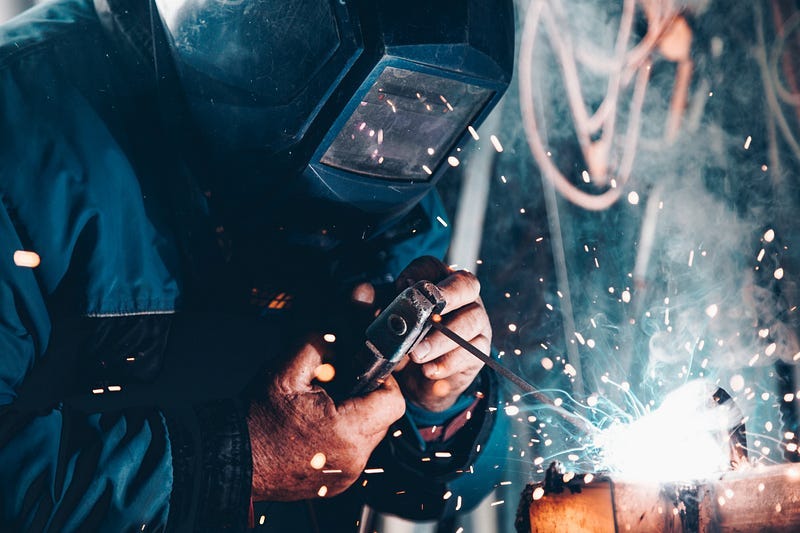Getting better at getting better
I know many people on the journey of continuous learning and improvement either as individuals, teams or a wider community.

I know many people on the journey of continuous learning and improvement either as individuals, teams or a wider community.
Unfortunately, many people are still stuck in the hamster wheel of being over utilized (capacity wise) and they are told to focus on delivery. If your manager / leader / stakeholder isn’t letting you invest in learning and improvement, then there is a learning opportunity for them as well.
The problem with not letting people come up for air, is that it doesn’t give people time to learn and reflect. That means they cannot improve and that means quality and time to market cannot occur. This is often the same rhetoric I hear when it comes to teams working on improving / maintaining their products vs pumping out features.
Knowledge work requires creativity, problem solving, learning and collaboration. If everyone is under pressure, how can people genuinely do this type of work without burning out.
Designing, building, and delivering complex products requires time to think, experiment and learn. You cannot have an empowered team if the team doesn’t feel that they have the time and space to learn, make their own decisions and crucially decide how they do things.
Feedback loops are also key to learning, but that is learning about your users / customer / market — not typically the individuals and the team. Sure, teams can learn what worked and what didn’t but that is often after the fact and when teams are overloaded, they can barely remember that complicated task from 5 days ago.
You cannot effectively learn or improve how you work when you are under stress / cognitive load. From what I’ve observed, people don’t process information into long term knowledge and as skills when they are under extreme pressure to deliver. In many cases, quality degrades and motivation drops.
Some interesting reading
… evidence further indicates that stress may hamper the updating of memories in the light of new information and induce a shift from a flexible, ‘cognitive’ form of learning towards rather rigid, ‘habit’-like behaviour
Cognitive Load Theory by John Sweller in 1988
Atkinson–Shiffrin memory model by Richard Atkinson and Richard Shiffrin in 1968.
When the people are under stress (over worked) this affects the amygdala part of the brain (the lizard brain), When the amygdala senses a threat, it becomes over-activated and new information cannot pass through it to access the memory and the associated circuits in the brain. (Edited from source: https://www.edutopia.org/blog/neuroscience-behind-stress-and-learning-judy-willis)
So what can you do about it?

Here’s a few options to consider / explore
reduce the amount of Work in progress, finish work before you start new work — the more active work you have open, the more you are affected by the Zeigarnik effect (summary: the more unfinished work you have, the more your brain is thinking about those things. That creates more stress, decreases quality, and reduces your ability to think clearly).
make sure you are reflecting on your work and how you work regularly (e.g. having effective retrospectives, if you aren’t getting value from them, you are not doing them effectively, reflect on how you can improve your retrospectives).
implement some team norms for learning and improvement, agree to how the team learn new ways of doing things and how to best bring them up with the team e.g. person A just found a new / easier / better way of doing an activity — they can share this with someone else by pairing up.
when you face large scale / big hairy problems, take the time out to focus on problem solving, organize a Kaizen style event. This is where you work through a problem, uncover options and collectively agree on how to solve a problem. This provides safe space for problem discovery.
break work into things you know how to do and things you don’t. If you don’t know how to do something, take some time in a spike to focus on solving the problem, rather than completing the original work. The value is in the learning, you throw away what you did in the spike and you are better equipped to complete the work with greater confidence. See Thinking, Fast and Slow by Daniel Kahneman— type 1 and type 2.
If you aren’t doing some of the above, you are already falling behind and that creates even more pressure. Taking time, taking space to think, learn, reflect is how you improve and go faster. Forcing people to work harder, reduces quality and motivation. Agile works best when people are happy, people are happy when they feel empowered and have intrinsic motivation. When it is only extrinsic, people optimize for incentives rather than for the joy of learning.
When was the last time you, your team or your organization spent time learning, reflecting and improving your processes and practices? I’m sure many will say they do online courses or if they are lucky, even in person — how often do you really see people go to a course and come back glowing with enthusiasm, only to not put any of that knowledge into practice. The knowledge festers, it doesn’t get put into practice and it just becomes a distant memory. That is a poor investment and loss of opportunity for the team.
Taking that one step further is deliberate practice. If the only time you are doing something is when you are doing it, how do you get better? Think about how much practice professional athletes and military organizations put into deliverable practice. This creates muscle memory, a space to learn and improve without fear of failure — if the only time you are doing work is when it needs to be delivered — failure becomes that much harder to cope with (Toyota Kata by Mike Rother).
Parting wisdom
So make sure you, your team and your department have enough time to learn, practice, reflect and improve. If they don’t, they will be outpaced by companies who are, which means you are falling behind.
To quote the great movie Talladega nights: the Ballad of Ricky Bobby— Reece Bobby (a semi-amateur race car driver) “if you ain’t first, you’re last!”

